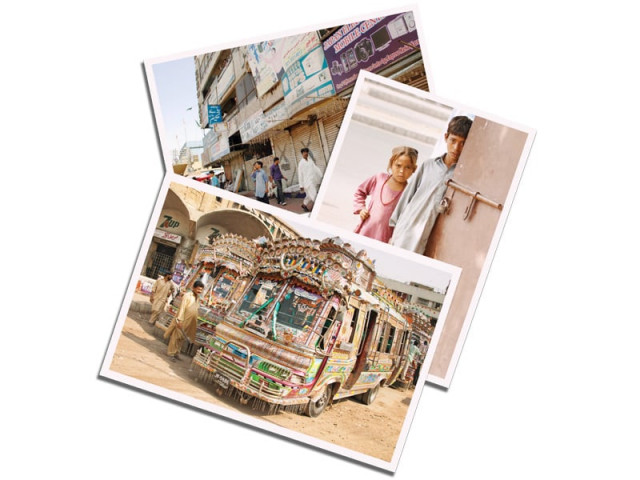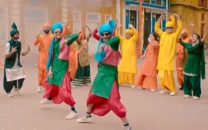Pakistan: A fantasy land for documentarians
Many new low-budget documentaries are focusing on Pakistan’s political situation.

With Pakistan finding its way on the list of failed states, it is no wonder that documentarians are trying to preserve ground realities in the form of film. There has been a notable increase in young Pakistani’s, as well as international documentarians, who are making films on how lives of ordinary people have been changed by the current political situation.
However, this does not require a lavish budget and many film-makers have managed to make excellent documentaries while facing severe budget constraints.
One such example is Without Shepherds, which was shot in the wake of Benazir Bhutto’s assassination as violent attacks resonated throughout Pakistan and pressure escalated from the West. The movie very simply takes the audience through the reality of six people’s lives, from the streets of Karachi to the border of Afghanistan and highlights the misunderstood side of Pakistan.
Director Cary McClelland feels that documentary films travel a rockier road to find funding than fiction films, since they offer less return on investment; Without Shepherds had to establish a website for donations. According to McClelland, “Pakistan as a subject has certainly been an asset rather than an obstacle. We’ve found a wide base of support amongst Americans keen to see a change in our approach to foreign policy questions, strong backing from Pakistani expats eager to build a bridge between their homeland and the rest of the world, as well as significant interest from distributors who see more and more potential for the film as Pakistan has become more prominent in the headlines.” However, the finan-cial challenges “took twice as much work to get the same level of support.”
McClelland added, “Our film’s journey should be an optimistic sign for those who fear Pakistan, facing insurmountable persecution and vilification abroad. Our community is a reflection of a basic human love and compassion many share with the people of Pakistan, and a genuine excitement in the chance to take a different path in the years to come.”
In today’s time, film-makers are trying to tell a timeless story. As seen in Without Shepherds, the story is more than rooted in current controversies. The director feels that the film offers critical context towards understanding the aspirations of Pakistan’s people — its progressive voices and grass-roots game changers. While commenting on the current situation, the director believes that “there’s probably been no better time for the film to find an eager audience, hungry for new perspectives”.
Haal, a docu-mentary set in the 1980’s Pakistan during the dict-atorship of General Ziaul Haq promotes, shows how the junta used Islam-ism as a tool to supress the media and suffocate the arts. The director, Assad Zulfiqar Khan feels that the reason documentaries are being made about Pakistan is because “Pakistan is a complex country to say the least. Our politics (or lack thereof) for the past 60 years has played a key role in shaping global events. Given the current infamy of our denizens, it’s only logical that people come and try and document our situation. And this can only be a good thing. Only after introspection can we as a people learn from the mistakes of our past and present. And what better way to realise our mistakes than seeing them on screen.”
Another doc-umentary, Escape, part of a film workshop conducted by the British High Commission in 2009, portrayed Pakistan simply through visual images in order to deco-nstruct the myth that ‘Pakistan is a dangerous place to live’. The director, Jibran Khan, says that the short documentary was mainly targeted for a foreign audience. He also feels that “Pakistani film-makers are now realising the world wants to know more about this land (and its problems). And in order to educate the foreign audience in terms of its culture and politics, many film-makers make documentaries — since they are much cheaper and cost effective.”
In the end, we are left with the video footage, which, almost always, portrays the problems of society and politics. If we can learn from our past mistakes and disperse this message to a wider audience, the aim of these dedicated film-makers will be fulfilled.
Published in The Express Tribune, July 10th, 2011.



















COMMENTS
Comments are moderated and generally will be posted if they are on-topic and not abusive.
For more information, please see our Comments FAQ